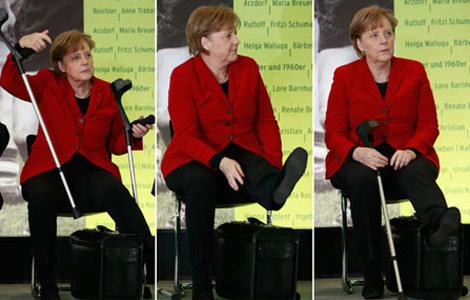Reform plan faces `challenges’: Professor
Updated: 2014-01-08 08:02
By By AMY HE in New York (China Daily USA)
|
||||||||
China's reform plan is "quite comprehensive", but there will be challenges in executing it, according to a professor at the China Center for Economic Research and the National School of Development at Peking University.
"The reform plan is quite comprehensive — in many cases, quite detailed — but we cannot underestimate the difficulties to carry out those reforms," said Yao Yang.
As China's push for economic reform has gone "deeper and deeper," the challenge of "ideological shifts" will also be met, he said in remarks on Monday at a 2014 economic forecast event hosted by the National Committee on US-China Relations at the New York Stock Exchange.
"Some people say that SOEs [state-owned enterprises] are quite difficult to reform because of the resistance of the SOE leaders," he said. "Of course, that can be an obstacle, but what is more important is that the top leaders believe that SOEs can implement the key national strategies." That kind of mindset is important in pushing for SOE reform, he said, and prevents the government from taking risks.
One major point in the communiqué released after the Third Plenum meeting was about rural land reform, Yao pointed out, where residential land in the countryside could be sold directly in the market as opposed to selling it back to the government, which increases the seller's gains through the sale.
Despite people's excitement over the proposed reform, Yao said that if a farmer defaulted, and the piece of land was offered to the bank, there's no way for the bank to cash in on the land. That's a "huge hurdle" for the government to have to overcome if they implement the reform, and something that "has a lot to do with old ideology of collective land ownership," Yao said.
There also are numerous obstacles the financial sector faces, he said. The "negative list" proposed in the Shanghai Free Trade Zone — which specifies bans and restrictions on types of foreign investments — will disappoint investors, he said, because "almost everything is on there."
Yao touched on the lack of private banks in China, saying that numerous companies have tried to establish them, and "many people expected [opening up a private bank] would be approved by the end of last year, but of course nothing happened."
Finally, the Third Plenum communiqué stressed economic reform, "but nothing on government reform," Yao said. The central government has the responsibility to pay for all debt — "It's not like in the United States with Detroit," he said — and that's going to "hugely distort the market signal."
Then there's the issue of government officials' tenure, which creates possibly more problem for local debt, Yao said.
"On average, [officials] only stay in one place for three years. Half of them stay there for less than two years. If I were a mayor, I would not care about the future. I would borrow heavily in my term and in two years, I'm going to go to another city, or even get promoted," said Yao.
The purpose in adjusting the local-central relation "is to curb the growth of local debt, and it seems we're heading in the wrong direction," he added.
amyhe@chinadailyusa.com

 Pollution's effect on health not clear yet, officials say
Pollution's effect on health not clear yet, officials say
 Russia imposes security clampdown in Sochi before Olympics
Russia imposes security clampdown in Sochi before Olympics
 X-ray reveals crying toddler had 5-cm needle inserted in his lung
X-ray reveals crying toddler had 5-cm needle inserted in his lung
 Tokyo urged to end militarism
Tokyo urged to end militarism
 Military drill in SW China
Military drill in SW China
 Rodman in DPRK with ex-NBA team
Rodman in DPRK with ex-NBA team
 Merkel breaks pelvis
Merkel breaks pelvis
 Trick photography
Trick photography
Most Viewed
Editor's Picks

|

|

|

|

|

|
Today's Top News
US jobless bill clears Senate hurdle
Solar firms face 'total eclipse' in US
Hong Kong Media mogul Shaw dies
Tokyo urged to end militarism
FBI names arson suspect
Park says ties with China at new high
Xuelong makes successful escape
Economists remain optimistic about Chinese growth
US Weekly

|

|






